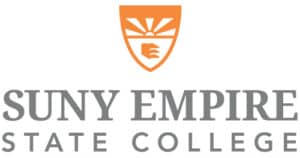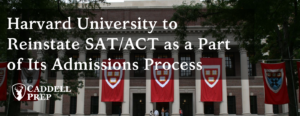
Unlike most colleges and universities, Empire State is primarily focused on adult learners who have been out of high school for a substantial period of time.
To provide better assistance to its working students, the school has cooperative learning agreements with different unions and other worker organizations, including eArmyU, UAW-Ford University, Corporate Noncredit Training, United Steelworkers of America, Navy College Program, and International Brotherhood of Electrical Workers.
Empire State College Acceptance Rate
The Empire State College acceptance rate is 100%. The most popular majors in the school are Business, Community Organization and Advocacy, and Psychology. With a 14% graduation rate, Empire State College produces alumni who go on to earn a starting salary of $37,500.
In line with their aim to offer higher education to any adult student who wishes to pursue it, Empire State features open admissions. Prospective students are required to provide a high school transcript or GED score report, a completed application with writing assessment to demonstrate the ability to pursue college-level work, proof of immunization, and a modest orientation fee. This fee is waived for veterans and those who are still active members of the military.
Those who are curious about returning to school are encouraged by Empire State to take an individual course or two in non-degree study. Several courses may be applied to degree programs later.
Admitted Students Profile
The average age of students at Empire State is 36 years old. Most students attend while employed–more than 80% take classes as part-timers. An estimated 63% of Empire State students are European American, 12% are African American, and 6% are Latino American. Out of six students, five are from the state of New York.
According to the student demographic, the category with the highest graduation rate at SUNY Empire State College is Male and Hispanic or Latino (33.3% graduation rate). Meanwhile, Asian Female students have the highest graduation rate (67.2%) across all Masters Colleges and Universities.
Tuition Figures
Statistics from 2016 show the cost of tuition at SUNY Empire State College was $6,470. This amount is $-13,690 less than the national average for colleges and universities, which is $20,160.
Students can get financial aid once they gain admission to the school. Aside from the wide range of state and financial aid options open to any college or university student in New York, Empire State provides its own scholarships that are need-based and merit-based. A majority of the students there receive financial aid of some kind for their studies.
Location
Empire State College is a public college based in Saratoga Springs, New York. SUNY Empire provides students with over 500 online courses and 35 learning centers scattered across the state of New York. They also have collaborative three-day residencies in Albany and Saratoga Springs.
Empire State College has campuses in Western New York, Central New York & Capital Region, and Downstate. It also has international program partners in Albania, Greece, Lebanon, Turkey, Panama, Czech Republic, and the Dominican Republic.
Academics
The mission of Empire State College is to give learning opportunities that specially cater to students with work, families, and responsibilities in the community. Their curriculum is centered on individualized study and the creation of an individual degree plan that is facilitated by a faculty member to whom every student is assigned.
There are several modes of study in Empire State College that include intensive residencies, independent studies, blended-learning experiences, study groups, and online courses. In fact, the college was one of the first US-based institutions to create a program of prior learning assessment. This program allowed students to earn college credit through assessment of prior learning from their previous work and life experiences.
There are flexible programs to better suit the students’ unique needs such as distance education, extensive transfers of credits from other universities, prior-learning assessment for knowledge gained through independent studies, standardized evaluations, and the opportunity to design one’s own degree with an academic advisor or mentor.
Master’s degrees are being offered at the School for Graduate Studies. The Center for International Programs at the school also has special programs for students in Lebanon through the American University of Science and Technology, Czech Republic, and Greece.
For veterans and active service military personnel, Empire State offers special programs they can participate in. More than half of Empire State students study at one of their many locations around the state of New York.
Student Life
The school’s first student club was approved in 2010. Since its inception, Empire State College now recognizes 18 student clubs established all around the state. Below are some of the student clubs and organizations in the school:
- Black Male Initiative Club
- Criminal Justice Club
- Education for All Club
- Graduate Student Collaborative
- Human Services Collaborative
- LGBTQA Student Alumni Club
- Multicultural Club
- Music Industry Club
- Paraprofessionals Circle
- Society for Entrepreneurship
- Sports Industry Club
- Student and Alumni Business Club
Athletics
*No data found in this section.
Notable Alums
Since its foundation in 1971, Empire State College has produced notable personalities who have excelled in different fields. Some have pursued careers in journalism, arts, sports, politics, business, science, music, and so on. Here are a few of them:
- Amy Arbus (2003), photographer
- Ita Aber, artist and curator
- Kenny Barron (1978), jazz pianist
- Ginny Brown-Waite (1976), US Congresswoman
- Dawoud Bey (1990), photographer
- Alice Fulton (1978), English professor, winner of the 1991 John D. and Catherine T. MacArthur Foundation fellowship for poetry
- Deborah Gregory (1986), author of Cheetah Girls
- Bob Herbert (1988), New York Times columnist
- Kathleen M. Jimino (2004), County Executive of Rensselaer County, New York
- Bernard Kerik (2002), former Commissioner of the New York Police Department
- James J. LeCleir (1974), U.S. Air Force Major General
- Steven McLaughlin, member of the New York State Assembly, County Executive of Rensselaer County, New York
- Kathy Muehlemann (1978), abstract painter & professor
- Elliott Murphy (1988), singer-songwriter & author
- Mae Ngai (1992) historian, Columbia University
- Alan Rachins (1974), television actor
- Mark J.F. Schroeder (1982), New York Commissioner of Motor Vehicles
- Melba Tolliver (1998), journalist, reporter, and news anchor
- Herb Trimpe (1997), artist on “The Incredible Hulk” comic series
- Bob Watson (1999), major league baseball player and executive
- Reggie Witherspoon (1995), college basketball coach
- James M. Sheppard (1999), chief of the Rochester Police Department and member of the Monroe County Legislature




